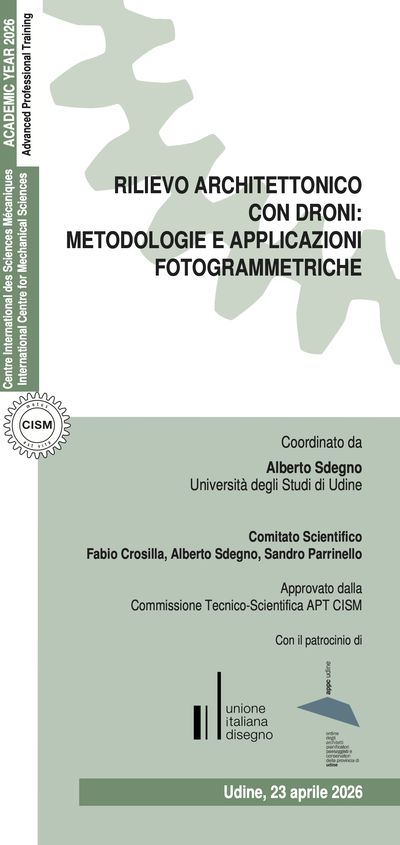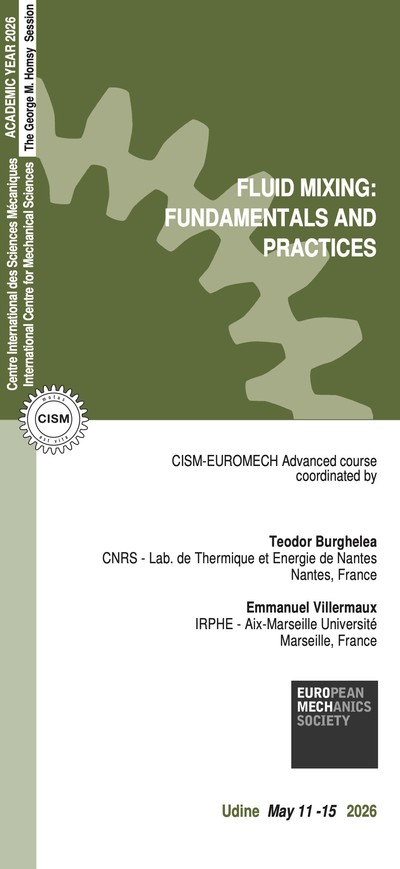Tribology, the science of friction and wear between solids in contact, requires a multiscale modelling approach. On the one hand, friction and wear are systemic properties, i.e. not attached to a material but to a system. A tribosystem consists in a pair of solid bodies (their nature, manufacturing and surface finishing, shape...), the contact conditions (kinematics, loadings) and, critically, lubrication.
On the other hand, surfaces are rough and this plays a major role through loading at asperity level and real area of contact. Tribology thus requires modelling at the macroscale – system scale – and at a microscale – typically the roughness scale, possibly going down to the atomic scale for the understanding of the fundamental interactions.
Manufacturing has a double interaction with tribology. Friction does govern a number of features of manufacturing processes: global forces and torques, machine power and strength requirement, material flow, tool deformation and machine vibrations (chatter) which impact product dimensions and quality, tool wear and surface quality of products... Reciprocally, manufacturing processes impart products with surface features (topography, composition, superficial properties, residual stresses...) which control their functionality.
Tribology in manufacturing is therefore a key engineering science subject. Chemistry is important for tribology (materials nature and properties, microstructural features, choice of lubricants); however tribology is strongly anchored in mechanics and generally taught in a Mechanical Engineering curriculum.
Numerical modelling has become a key tool in this field. Transmission of this know-how will be an integral part of the course:
- macroscopic process modelling discloses the working conditions of the interface;
- microscale numerical modelling gives precise, physics-based homogenized friction or wear models;
- FE2 approaches of mixed regime lubrication address multiple micromechanisms of lubrication.
These trends will be illustrated and their potential discussed in view of scientific knowledge as well as for practical application.
Through a multidisciplinary approach combining theory and practice, this course intends to provide its audience, academic researchers as well as R&D engineers from industry, with both the well-established bases of this particular field and advanced models and operational concepts illustrated by examples of recent and on-going research, including on how tribology may contribute to greener manufacturing.
The course is addressed, through its mixture of basic and advanced notions, to:
- MSc or doctoral students who can learn approaches useful for their thesis;
- young researchers completing their specialization in tribology of manufacturing;
- more experienced researchers in mechanical engineering or tribology who desire to enter this specific field;
- engineers from industry who want to add to their practical know-how an in-depth understanding of the underlying mechanisms.
In a poster session at the end of the first day, the attendants will be given an opportunity to present one of their research subjects through a brief pitch and a poster, to be discussed with other participants and with the experts.
An attestation describing the content will be provided to students on demand in view of ECTS accountance, to be determined with their administration.
J.A. Schey : Tribology in Metalworking : friction, lubrication and wear. ASM (Metals Park, USA) 1983.
C.V. Nielsen, N. Bay : Review of friction modelling in metal forming processes. J. Mat. Process. Tech. 255 (2018) 234-241.
N. Bay : Cold Welding 1 ‑ Characteristics, bonding mechanisms, bond strength. Metal Construction 18, 6 (1986) 369-372.
N. Bay, A. Azushima, P. Groche, I. Ishibashi, M. Merklein, H. Morishita, T. Nakamura, S. Schmid, M. Yoshida : Environmentally Benign Tribo-systems for Metal Forming, Keynote paper, CIRP Annals – Manufacturing Technology, 59, 2 (2010) 760-780.
N. Bay, D.D. Olsson, J.L. Andreasen : Lubricant Test Methods for Sheet Metal Forming. Tribology Int. 41, 9 (2008) 844-853.
Y. Carretta, R. Boman, J.I. Bech, N. Legrand, M. Laugier, J.-P. Ponthot : Numerical modelling of microscopic lubricant flow in sheet metal forming. Application to plane strip drawing. Int. J. Numer. Meth. Engg 112, 3 (2017) 203-237.
P. Montmitonnet : Plasto- Hydrodynamic Lubrication - application of lubrication theory to metal forming processes. C.R. Acad Sci. Paris IV, 2, 5 (July 2001) 729-737.
P. Montmitonnet, E. Felder : A Third-Body Modelling Strategy for the Prediction of Adhesive Transfer Layer Formation on Forming Tools. Proc. ICTMP 2016 (Phuket, Thailand, 29 Feb - 2 March 2016), Thai Tribology Association, 2016, 62-73.
L. De Chiffre, H. Kunzmann, G.N. Peggs, D.A. Lucca : Surfaces in Precision Engineering, Microengineering and Nanotechnology. CIRP Annals 52, 2 (2003) 561-577.
D.A. Axinte, W. Belluco, L. De Chiffre : Reliable tool life measurements in turning - an application to cutting fluid efficiency evaluation. Int. J. Mach. Tools Manuf 41, 7 (2001) 1003-1014.
M. Dubar, A. Dubois, L. Dubar: Wear analysis of tools in cold forging: PVD versus CVD TiN coatings. Wear 259 (2005) 1109- 1116.
4 lectures on:Application of the plasticity theory to roughness-scale modeling of friction; Practice, physical mechanisms and modelling of welding by plastic deformation; Methodology and applications of process-adapted tribotest development; Environmentally friendly lubricants in metal forming.
9 lectures on:Tribology of metal cutting processes: the impact of friction in cutting processes with the importance of fresh metal surface and heat generation; Metal cutting lubrication and its monitoring; Tribotesting in cutting processes.
6 lectures on:Interaction between damage micro-mechanisms, wear and friction, wear phenomenology and wear mechanisms, different modes of material damage and their relation to wear modes, modelling of wear, wear consequences on superficial metal structure and properties, interactions between friction and wear.
8 lectures on:General notions necessary for the specialized lectures, i.e. modelling rough surfaces, adhesion physics and the modelling of seizure, modelling of material removal processes based on wear such as grinding or sawing, control of friction in metal forming through tool surface engineering and lubrication system optimization.
6 lectures on:Numerical modelling of lubrication: hydrodynamic lubrication phenomenology and modelling using Reynolds equation, 2-scale modelling of mixed-to-boundary regime micromechanisms coupling asperity-scale plasticity models and fluid lubrication theory, and the particular case of micro-hydrodynamic lubrication.
The registration fee are:
- Participation in presence, 600.00 Euro + VAT*
This fee includes a complimentary bag, four fixed menu buffet lunches (on Friday upon request), hot beverages, download- able lecture notes.
- Participation online, 250.00 Euro + VAT*
This fee includes downloadable lecture notes.
Applicants must apply at least one month before the beginning of the course. Application forms should be sent on-line through the following web site: http://www.cism.it. A message of confirmation will be sent to accepted participants. Applicants requiring assistance with the registration should contact the secretariat at the following email address: cism@cism.it.
Applicants may cancel their course registration and receive a full refund by notifying CISM Secretariat in writing (by email to cism@cism.it) no later than two weeks prior to the start of the course.
Cancellation requests received during the two weeks prior to the start of the course will be charged a 50.00 Euro handling fee. Incorrect payments are also subject to a 50.00 Euro handling fee.
A limited number of participants from universities and research centres who are not supported by their own institutions can be offered lodging and/or board, if available, in a reasonably priced hotel or student guest house.
Requests should be sent to CISM Secretariat by March 10, 2021 along with the applicant's curriculum and a letter of recommendation by the head of the department or a supervisor confirming that the institute cannot provide funding. Preference will be given to applicants from countries that sponsor CISM.
Information about travel and accommodation is available on the web site www.cism.it, or can be mailed upon request.
* where applicable (bank charges are not included), Italian VAT is 22%.





